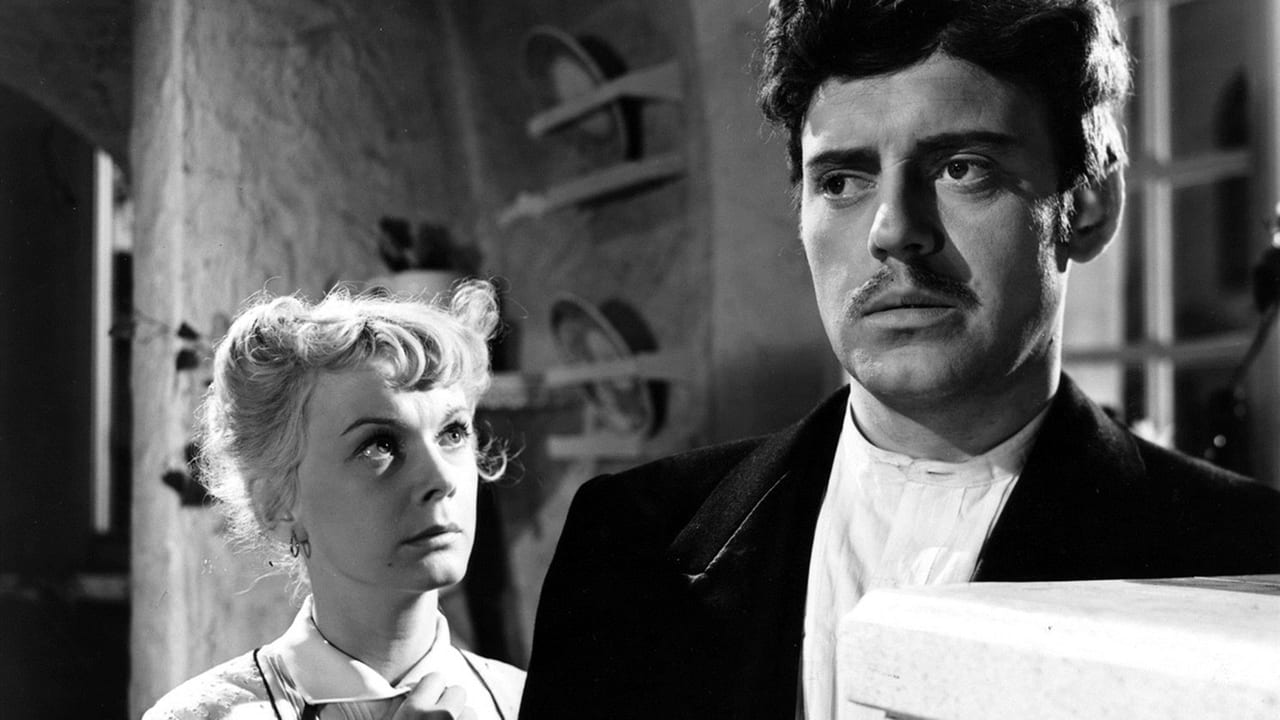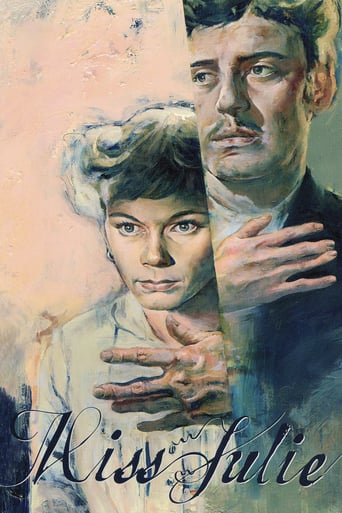

The young miss Julie (Anita Bjork) lives in a mansion with her father. She has recently broken her engagement but is attracted to one of the servants, Jean. They spend the midsummer night together, telling each other their memories and of their dreams. Realizing that an affair between a man of the people and an aristocrat is impossible, they plan to escape to Switzerland.This film had an interesting influence abroad. Alfred Hitchcock said he had hired Björk as the female lead for "I Confess" in 1952, after seeing her in "Miss Julie". However, when Björk arrived in Hollywood with her lover Stig Dagerman and their baby, Jack Warner, head of Warner Brothers, insisted that Hitchcock find another actress.What makes this is a great film, beyond the absolutely gorgeous cinematography, is the intrinsic idea of class division. It had been done before and has been done since, but it is a theme that seems to be eternal and always a joy to watch when properly executed.
... View MoreSjoberg takes a Strindberg play and converts in into a superb movie. The dramatic conflicts faced by the characters is intense and plausible and almost painful to watch.The theme is the repression of women and sexual expression, and the rigid class system, in Sweden around the turn of the century, many years before the liberating effects of the victory by the Social Democrats in the election of 1932. It is exemplified by the disastrous attempt by Julie, the daughter of a count, to find love with a man who is well-educated, strongly respectful of his place, very handsome and personable, but of the servant class. The cast gives fine performances all up and down the line. Sjoberg directs with the hand of a master, some scenes expressionistic, some impressionistic, close-ups as needed, long shots perfectly fitted in.If you are not familiar with Sjoberg, note that a big part of Bergman's startup came from his collaboration with the older Sjoberg on the movie Torment, in which Sjoberg directed and Bergman wrote the script and served as assistant director.
... View MoreWell, at the very least this film deserves more than the two lone commentaries here so far. While hardly relishing it the way the others have, it is surprising that a movie this good has gotten so little notice at this site, and for all I know maybe elsewhere. Because it sprang from a play, and a rather famous one at that, it has a certain staginess about it, no matter how deftly it has been opened up, and I am not at all sure that the principals were the right ones, good as they are. Nevertheless, there are many fine things about them and it, and it is certainly a better movie that a good eighty or ninety percent of the ones that came out during the fifties. Perhaps the clumsiness of the S and M stuff could have been softened into a little more subtlety, there is just too much of hip hop quality to it that does not seem felt, since Strindberg usually used a sledgehammer for that sort of thing, and almost had to from the narrow horizons of stage, words words words being all that he had at hand, but Sjoberg demonstrates such a fine feel for the camera that he could have turned it into something a lot more powerful. Also the limitations of budget seems a little evident, more or less working with what was in the neighborhood.Still this movie is not without its fascinations, and the childhood stuff has real nightmarish quality. Bergman's Naked Night had some very powerful stuff along the beach with the soldiers that was more obviously powerful, but the childhood stuff here was almost its equal. If you have not seen this Miss Julie, do yourself a favor. Its quite good.
... View MoreSome films are so utterly faultless and brilliantly made that one is almost at a loss to find enough superlatives with which to praise them, and yet, at the same time keep it credible. MISS JULIE is one such film, and it seems entirely fitting that one of the greatest Swedish films ever made should be based on the work of one of Sweden's greatest writers. Every single aspect of this film is perfect; the black and white photography, the wonderful musical score by Dag Wiren, the acting from all the cast, but in particular from Anita Bjork who sets a standard in playing Miss Julie that could hardly be bettered. The play which provides the screenplay is of course devastating with the inexorable interplay between class and rank, and human desire and lust overlapping and intertwining, and too, the now almost forgotten concept of "duty" and "honour". If you like movies that make you think, eat away at your heart and memory long after you have seen them, then I cannot recommend MISS JULIE more highly. In the fifty years since it was made, its brilliance has not diminished one jot. A masterpiece and a film to truly treasure.
... View More